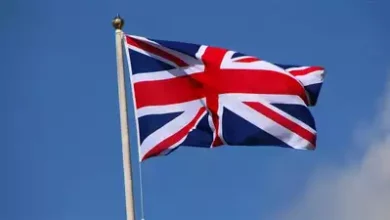Following weeks of impasse, the UK Parliament adopts the Rwanda expulsion bill
Just hours after he announced that deportation flights would start in July, British Prime Minister Rishi Sunak’s most recent attempt to transfer some migrants to Rwanda eventually received consent from Parliament early on Tuesday.

Just after midnight, the unelected House of Lords “recognized the primacy” of the elected House of Commons and withdrew the last of its planned modifications, breaking the legislative impasse that had held up the legislation for two months and allowing the bill to become law.
Sunak had earlier in the day called an unusual early morning news conference, threatening to keep both chambers of Parliament in session until his important plan to curb the flow of migrants in tiny boats crossing the English Channel was approved, and demanding that the Lords cease delaying it.
The impasse in Congress was just the most recent obstacle to the plan’s execution being delayed; it has been continuously halted by a number of court decisions and criticism from human rights groups who claim the idea is unlawful and cruel. Advocates for migrants have promised to keep up the battle against it.
In London on Monday morning, Sunak addressed the media, saying, “For nearly two years, our opponents have used every trick in the book to block fights and keep the boats coming.” However, enough is enough. No more holding back and no more delays.
To discourage migrants risking their lives on leaky, inflatable boats in the hopes of obtaining asylum once they reach Britain, the government intends to deport some illegal immigrants to Rwanda.
Tim Bale, a politics professor at Queen Mary University of London, said that more judicial challenges may potentially postpone the deportation flights even after Parliament approves the measure.
He said, “I don’t think it is necessarily home and dry.” “There will be some legal attempts to stop deportations.”
With his political destiny hanging in the balance ahead of a general election later this year, Sunak has bet his political career on the deportation flights, highlighting his promise to “stop the boats” in his voter pitch. Polls indicate that his Conservative Party is far behind the Labour Party. The municipal elections that take place next week are seen as a predictor of how the parties will do in the national election.
This argument in Britain coincides with efforts by Western European and North American nations to find measures to mitigate the exodus of people from their homes brought about by war, natural disasters, and political persecution.
In Britain, small boat crossings are a contentious political problem since they are seen as proof of the government’s inability to regulate immigration.
Small boat arrivals of migrants into Britain increased from 299 four years ago to 45,774 in 2022 as those seeking safety pay criminal gangs hundreds of pounds to traverse the water.
As the government tightened down on people traffickers and came to an agreement to send Albanians back to their homeland, the number of small boat arrivals fell to 29,437 last year.
“The most significant observation, in my opinion, is the government’s obvious desperation to pass this legislation in order to fulfill its pledge to halt the boats, at the very least as a first step,” Bale said.
Although Sunak conceded that he would not be able to reach his initial goal of launching the first deportation flights this spring, he attributed the delays to the opposition Labour Party’s ongoing hostility.
On Monday, Sunak said that the first flights will begin in ten to twelve weeks. However, he declined to provide specifics on the number of deportees or the precise dates of the flights, citing concerns that such data would enable opponents to persist in their efforts to thwart the program.
According to Sunak, the government has already employed additional immigration caseworkers, expanded jail capacity, rented aircraft for the deportation flights, and opened up courtroom space to process appeals in advance of the bill’s adoption.
Additionally, he implied that if the European Court of Human Rights attempted to stop the deportations, the administration was ready to overlook it.
Sunak said, “We are prepared, we have plans, and these flights will go through whatever happens.” “We won’t let a foreign court prevent us from canceling flights.”
As a result of the government’s inability to ensure the safety of migrants transferred to Rwanda, the U.K. Supreme Court banned the deportation flights, prompting the present law known as the Safety of Rwanda Bill. Following the adoption of a new pact to strengthen safeguards for migrants, the government put out new legislation designating Rwanda as a safe nation.
Due to the peculiarities of the British parliamentary system, the measure has stagnated. Although it does not have the authority to completely veto legislation, the House of Lords is tasked with carefully examining and suggesting changes to bills that have been passed by the House of Commons.
Because of this, the Rwanda bill was constantly referred back and forth between the two houses of Parliament, with the Lords submitting revisions that the Commons rejected, sending the measure back to the upper chamber.
Opponents of the government’s strategy declined to speculate on what might happen next. Director of Detention Action, James Wilson, reminded the public to see beyond the political impasse and consider the issues at hand. Detention Action fights against violations of human rights in the immigration system.
“In the end, the things that are happening in Parliament and its intricacies are not the most important points here,” he said to The Associated Press. This is ultimately about individuals. It concerns people’s lives here.







